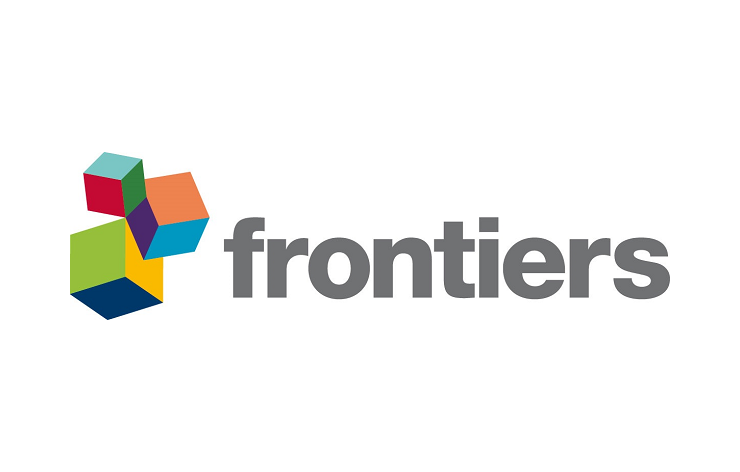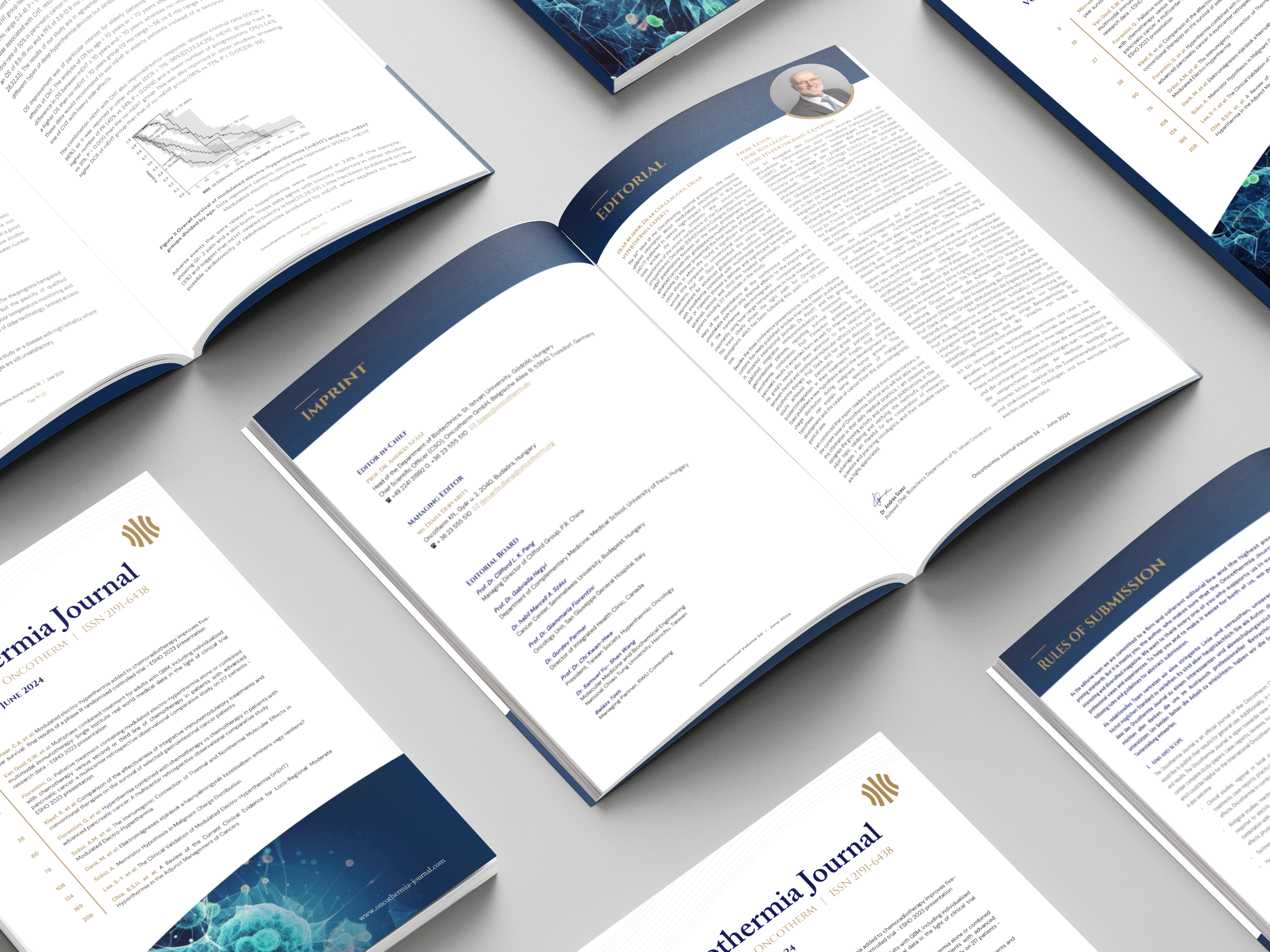Um den ganzen Artikel zu lesen klicken Sie bitte hier
Gratulation zu dieser interessanten Arbeit!
Betrachtung der klinischen Befunde zur Methode der modulierten Elektro-Hyperthermie (mEHT): Ein Update für praktizierende Onkologen
Attila M. Szasz1*†, Carrie Anne Minnaar2†, Gyongyver Szentmártoni1, Gyula P. Szigeti3 and Magdolna Dank1
Zusammenfassung
Background: Modulated electro-hyperthermia (mEHT) is a variation of the conventional hyperthermia which selectively targets the malignant cell membranes in order to heat the malignant tissue and sensitize the tissue to oncology treatments. Although widely applied, the formulation of guidelines for the use thereof is still in progress for many tumors.
Aim: In this paper we review the literature on the effects of mEHT in cancer patients on local disease control and survival.
Methodology: Our review on data presents the collected experience with capacitive hyperthermia treatments with the EHY-2000+ device (OncoTherm Ltd., Germany). A literature search was conducted in Pubmed and articles were grouped and discussed according to: trial type, animal studies, in vitro studies, and reviews. Search results from Conference Abstracts; Trial Registries; Thesis and Dissertations and the Oncothermia Journal were included in the discussions.
Results: Modulated electro-hyperthermia is a safe form of hyperthermia which has shown to effectively sensitizes deep tumors, regardless of the thickness of the adipose layers. The technology has demonstrated equal benefits compared to other forms of hyperthermia for a variety of tumors. Given the effective heating ability to moderate temperatures, the improved tumor perfusion, and ability to increase drug absorption, mEHT is a safe and effective heating technology which can be easily applied to sensitize tumors which have demonstrated benefits with the addition of hyperthermia. Modulated electro-hyperthermia also appears to improve local control and survival rates and appears to induce an abscopal (systemic) response to ionizing radiation.
Conclusion: Based on clinical studies, the method mEHT is a feasible hyperthermia technology for oncological applications. Concomitant utilization of mEHT is supported by the preclinical and clinical data.
1Cancer Center, Semmelweis University, Budapest, Hungary
2Radiobiology, University of the Witwatersrand, Johannesburg, South Africa
3Institute of Human Physiology and Clinical Experimental Research, Semmelweis University, Budapest, Hungary
*Correspondence: Attila M. Szasz, szaszam@gmail.com
†Equal first authors






